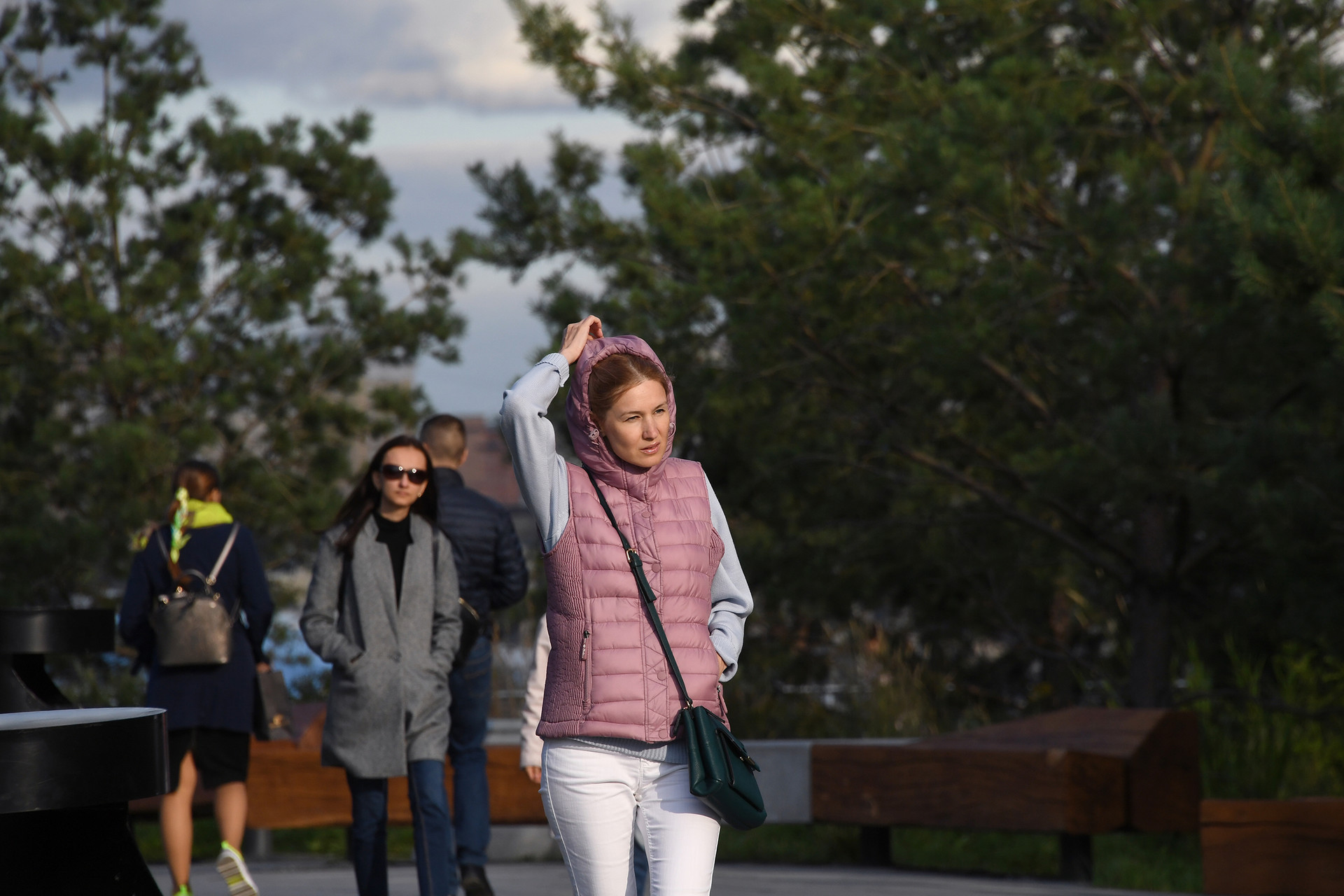The weather in August will not be able to please the Russians with warmth for a long time, says Roman Vilfand, the scientific director of the Hydrometeorological Center of Russia. According to him, now there is a rare temperature drop for this period of the summer season, “by about 7.5 ° C”. Such a situation occurs “no more than 5% of cases in the interval of the end of July-beginning of August”.
“Such cold weather is now observed in the North-West, Central, Volga federal districts, it will last long enough. In the first week of August, the weather will be below the norm by 5-8 ° C in all these regions, ”the specialist said in an interview with RT.
Relatively warm weather will return to Central Russia at the end of next week, the Hydrometeorological Center reports. The key role in this process will be played by the South European cyclone, which is still in the formative stage.
“It will bring both warmth and fresh air of Mediterranean origin. But only at the end of next week, ”the ministry said.
Up to this point, in the European part of Russia, quite cold weather will be established.
“Until the end of the week, the center of European Russia will be under the influence of an active cyclone, which will move from the southern slopes of the Urals to the north. He will continue to keep the region with cooler than the typical calendar days, with little rain, ”the Hydrometeorological Center website notes.
- RIA News
- © Evgeny Biyatov
The weather will begin to even out closer to this weekend, but one should not expect a dramatic warming, said Tatiana Pozdnyakova, chief specialist of the Moscow Meteorological Bureau.
“It is expected that the temperature will increase, that is, at the weekend we will not have such significant rains, it will be warmer at night, in Moscow it will be about +10 ... 12 ° С, daytime temperatures in the city will be within +17 ... 19 ° s This is higher than now, but for now the temperature as a whole remains below the climatic norm, but not by 6-7 ° C, as it was in the last days of July, but already by 3-4 ° C. The tendency to increase the temperature is scheduled, "- said the forecaster.
This weather will continue for at least the next week.
“Next week, no significant temperature increase is expected. In some places, small short rains will persist. The weather will remain the same as on weekends, ”Pozdnyakova said.
In the end, the first half of August will not give residents of Moscow and Central Russia warm weather, told RT official Phobos weather center Mikhail Leus.
“The first two weeks of August, even more likely, its first decade will not please Muscovites and guests of the capital with sunny, dry and comfortable weather. The synoptic situation in this region will continue to form a cyclone, which came to European Russia on Monday. Now, having made a kind of loop and having reached the Middle Volga region, then going to the middle Urals, this cloud whirlwind will return to the northeast of the European part of our country again, hooking a new portion of the Arctic air. So within 7-10 days in the metropolitan region will remain cloudy with clearing weather with short rains. At night it will be +7 ... + 12 ˚С, not higher than +14 ... + 19 ˚С, ”the expert believes.
The last day of July was the coldest in Moscow in the last 70 years, Mikhail Leus told RIA Novosti earlier.
“On the eve, the maximum air temperature in Moscow reached only +14.7 ° С. Thus, the last day of July was the coldest for at least 70 years in Moscow, ”he said.
The current week as a whole turned out to be unusually rainy and cloudy for July. July itself, experts called the "coldest in the XXI century."
“The average air temperature in July-2019 in Moscow was + 16.8 °, which is 1.4 ° below the climatic norm. With such an indicator, July-2019 was the coldest among all the July of the 21st century. Moreover, the second month of summer in the capital has not been so cold for 32 years since 1987, when the average temperature of this month was exactly the same, ”the Phobos center commented on the weather situation.
Weather forecasters previously associated such cold weather with the “ultrapolar invasion” - the cold arctic air that came to Russia through the Kara Sea.
This is a rather rare phenomenon associated with a change in the nature of the movement of air masses, which now move vertically, rather than horizontally, as before. For this reason, European countries are now suffering from the African heat, and Russia - from the Arctic cold.

